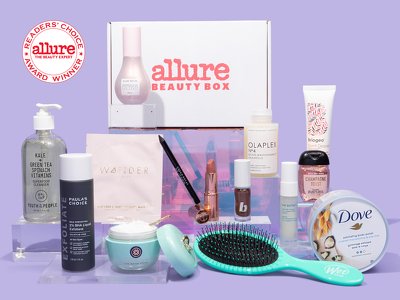Spelman College's Cosmetic Chemistry Program Will Focus on Black Beauty Consumer Needs

All products are independently selected by our editors. If you buy something, we may earn an affiliate commission.
In January 2023, Spelman College launched an online certificate program in cosmetic science, and in just four terms, interest skyrocketed; 150 applications increased to 750. With such an energized response, the next step became abundantly clear, and now Spelman has announced that it will be expanding its STEM programming to offer a concentration in cosmetic chemistry for chemistry majors and a minor in cosmetic science for non-chemistry majors.
The first program of its kind for an HBCU (historically Black colleges and universities), Spelman's new cosmetic chemistry curriculum was announced earlier this month and, according to a press release, will focus on product formulation and development. But unlike other cosmetic chemistry degree programs, Spelman's won't just be about ingredients and molecular sciences. It will also address and emphasize the needs and experiences of the Black beauty consumer.
“This expansion of our curriculum speaks to Spelman’s innovation and commitment to giving voice that empowers Black women,” Spelman provost Pamela Scott-Johnson said in a statement. “The program will be far-reaching and will support our students and faculty in making a difference in a field that caters to Black women as consumers, fueled by the scientific expertise in this area.”
Leyte Winfield, professor of chemistry and biochemistry, echoed Scott-Johnson's enthusiasm for the new program. “I am equally excited that this endeavor positions us to offer a culturally relevant perspective that is needed in the conversation on Black hair and skin care and the development of cosmetics,” she said.
In addition to courses that provide in-depth exploration of cosmetic formulations and regulations, Spelman's cosmetic chemistry curriculum will also offer classes such as Black Hair Lab, which will focus on textured hair and provide students with a deeper understanding of surfactants and polymers, and Psychology of Beauty, which will “explore how African American beauty is used politically, socially, and culturally to undermine, marginalize, and separate Black women from the dominant cultural narrative and the psychological standard of beauty.”
The announcement of the program has been well-received among prominent members of the cosmetic chemistry community, such as cosmetic chemist and licensed esthetician Esther Olu. “A cosmetic chemistry degree program at an HBCU, specifically Spelman College, holds profound significance. Firstly, it addresses the long-standing lack of diversity within the field by providing opportunities for Black students to excel and contribute to cosmetic science,” Olu tells Allure, adding that she has sometimes been the only Black woman in the room in professional settings. “Secondly, it can cater to the specific needs of communities of color, offering tailored education on beauty products. Thirdly, empowering students with the skills and knowledge needed to thrive in the beauty industry fosters economic empowerment within Black communities.”
Cosmetic chemist and BeautyStat founder Ron Robinson believes Spelman's program will open up doors to new talent that better understands the unique hair and skin-care needs of people of color, resulting in new innovations and leaders alike. “People of color over-index in beauty product spending compared to non-people-of-color, yet only 2.5 percent of beauty brands are Black-owned,” he tells Allure. “[This program] will provide a path for future leaders in the beauty industry as well as brand founders.”
Ultimately, Spelman's new cosmetic chemistry program is much more than a unique and valuable opportunity for its students; its ripple effect has the potential to be felt by countless consumers.
“By understanding the unique characteristics of Black hair and skin, cosmetic chemists can formulate products that celebrate and enhance natural features rather than attempting to conform to Eurocentric beauty standards,” Olu says. “This can lead to increased consumer satisfaction and loyalty, ultimately driving positive brand reputation and success within the market."
More on cosmetic chemistry:
Now watch cosmetic chemist Javon Ford analyze different makeup formulas:
Follow Allure on Instagram and TikTok, or subscribe to our newsletter to stay up to date on all things beauty.
- Last
News by day
27 of April 2024







